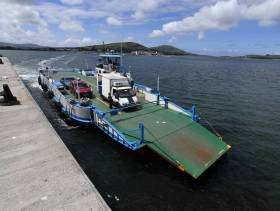Displaying items by tag: Save Our Ferry
Valentia Island: 'We Need Support to Save Our Ferry'
#islandnews - The Kerryman writes that the ferry service to Valentia Island is a vital asset to all south-west of the county and should be given the financial support it needs to continue into the future.
That was the view of Councillor Norma Moriarty at last week's meeting of the South and West Kerry Municipal District following a deputation by Valentia Island Ferries Limited.
The deputation spokesperson Muiris O'Donoghue explained that, through its own money and borrowings, the group currently has €1million of the €2.8million it needs for a new boat it has designed. While its current boat - a 1963-built craft that has operated every March to October in south Kerry since 1996 - is in good shape according to Mr O'Donoghue, the Marine Survey Office has said that the boat will have to be replaced in 2018.
The group has not secured funding from the Fáilte Ireland Capital Programme for larger project, and says it has done all it can to raise funds through its own initiative. An emergency meeting will take place in the coming weeks between Ministers Heather Humphreys, Michael Ring and Shane Ross to discuss approaches to securing the ferry's future.
Deputy Michael Healy Rae said no date is in place but that Minister Ross "wants it arranged as soon as possible".
For more from the local newspaper, click here.
























































